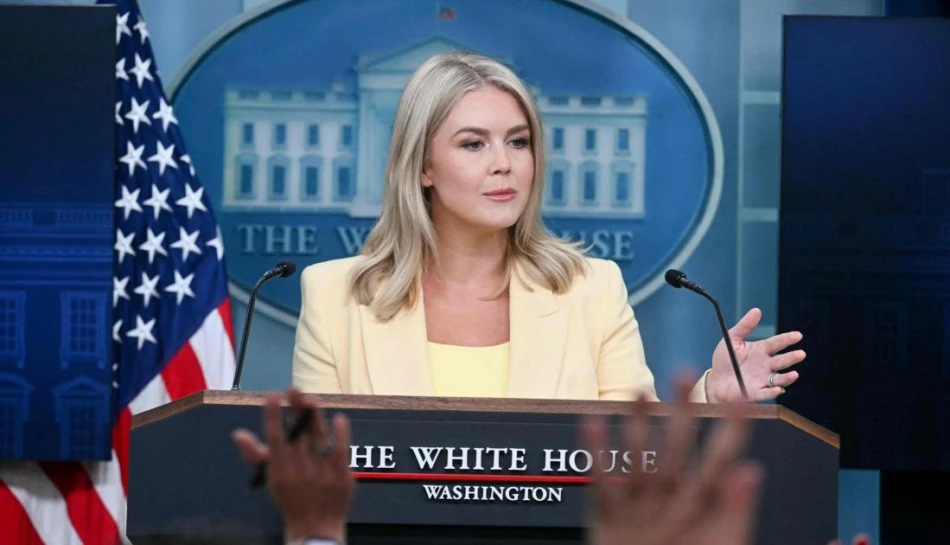
White House Secures US Control over TikTok's Algorithm Through New Deal
Trump Administration Claims Victory: TikTok Deal Would Put US Firms in Control of Algorithm
The White House announced Saturday that an emerging agreement with China would place American companies in full control of TikTok's powerful recommendation algorithm while granting US representatives majority control of the board overseeing American operations. The deal, if finalized, would represent a significant geopolitical win for the Trump administration and potentially reshape how foreign-owned tech platforms operate in the United States.
Algorithm Control: The Heart of National Security Concerns
The central battleground in the US-China TikTok dispute has always been the algorithm—the sophisticated system that determines what content appears on users' feeds. White House Press Secretary Caroline Leavitt confirmed that Oracle, the American tech giant, would assume responsibility for the app's data and security infrastructure, while Americans would control six of seven planned board seats.
"The algorithm will also be under American control," Leavitt stated during a Fox News interview, providing the clearest indication yet of how the administration envisions resolving national security concerns while keeping the popular platform operational.
Why the Algorithm Matters
US officials have long warned that TikTok's algorithm represents a potential national security vulnerability. Unlike traditional social media platforms, TikTok's recommendation system is uniquely powerful at shaping user behavior and could theoretically be manipulated by Chinese authorities to influence American public opinion in ways that would be difficult to detect.
From Ban to Bargaining: Trump's Strategic Pivot
The proposed deal represents a dramatic reversal from the outright ban Congress approved for January implementation. President Trump has repeatedly issued executive orders allowing TikTok to continue operating while his administration negotiates what could become the most significant forced divestiture of a foreign tech asset in US history.
Following a lengthy phone call with Chinese President Xi Jinping on Friday, Trump expressed optimism about American investor readiness and praised the Chinese leader as "a gentleman" regarding the negotiations. However, Trump remained characteristically vague about specifics, saying only that "we're going to have great control."
Market and Investor Implications
The potential TikTok restructuring could establish a new template for how democracies handle foreign-owned platforms that achieve significant domestic influence. For investors, the deal represents both opportunity and precedent—American tech companies could gain access to TikTok's valuable user data and algorithmic insights, while foreign tech firms may face increased scrutiny and forced partnerships.
Oracle's central role in the arrangement positions the company as a key beneficiary, potentially gaining access to one of the world's most sophisticated content recommendation systems. The deal structure could also influence how other countries approach Chinese tech platforms operating within their borders.
Global Context: A New Model for Tech Sovereignty
The TikTok agreement, if completed, would mark a middle path between the total bans implemented by countries like India and the relatively permissive approaches taken by European nations. Unlike India's outright prohibition or the EU's regulatory framework, the US model emphasizes operational control transfer rather than complete exclusion.
This approach could influence similar negotiations worldwide, particularly as governments increasingly view social media algorithms as critical infrastructure requiring domestic oversight.
Public Opinion Shifts
Recent Pew Research data reveals changing American attitudes toward TikTok restrictions. Support for a ban has declined from 50% in March 2023 to approximately one-third of Americans today, with equal portions opposing a ban or remaining uncertain.
Significantly, among those supporting restrictions, 80% cite data security concerns as their primary motivation—suggesting the proposed Oracle partnership could address key public concerns while preserving the platform's popularity.
What's Next: Implementation Challenges
Despite White House optimism, significant hurdles remain. Chinese government statements following the Xi-Trump call provided no clarity on Beijing's position regarding the sale of controlling interest in ByteDance's US operations. The technical complexity of transferring algorithmic control while maintaining platform functionality also presents unprecedented challenges.
Leavitt expressed confidence that signatures would come "in the coming days," but the deal's success ultimately depends on Chinese regulatory approval and the practical feasibility of separating TikTok's US operations from its parent company's global infrastructure.
The agreement, if finalized, would represent more than just a business transaction—it would establish a new framework for managing the intersection of technology, national security, and international commerce in an increasingly connected world.
Most Viewed News

 Omar Rahman
Omar Rahman






